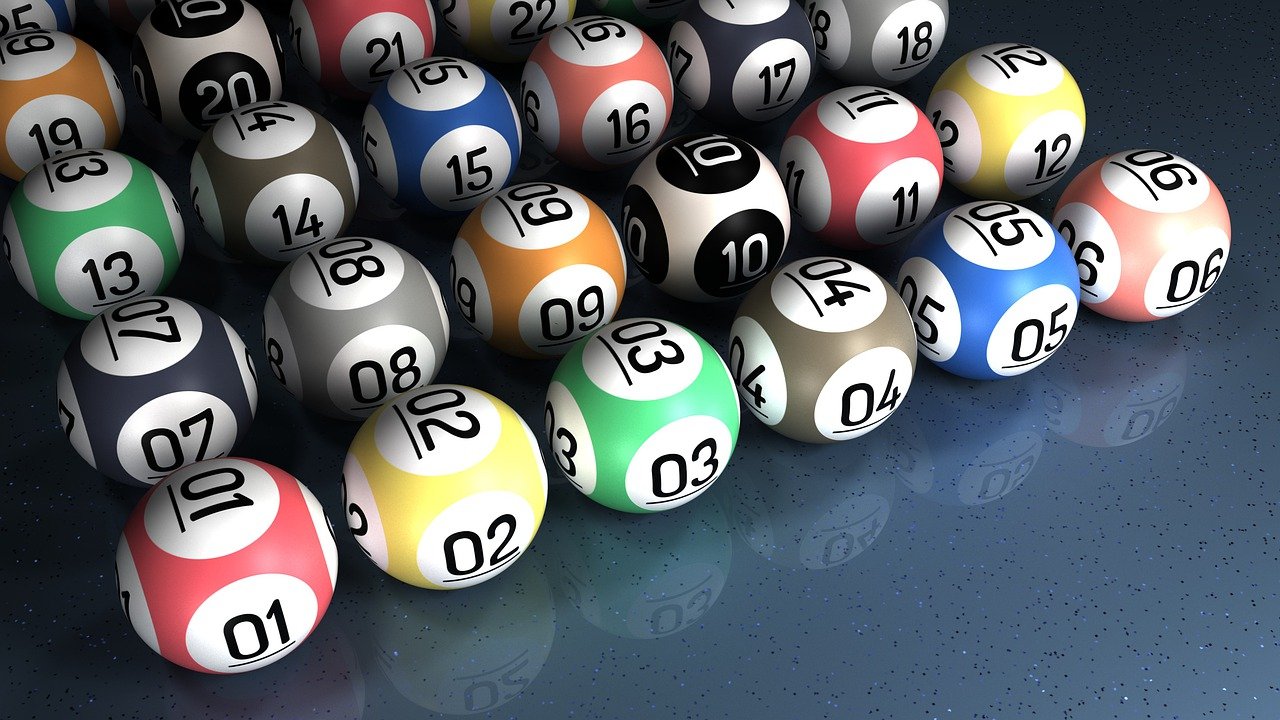Tips for Enhancing Your Poker Game Through Continual Learning and Improvement
Poker is a game of skill, strategy, and constant adaptation. Whether you’re a beginner or an experienced player, the key to long-term success lies in continually honing your skills and expanding your knowledge. In this article, we will explore a range of tips and techniques to help you enhance your poker game through continual learning and improvement. From studying and analyzing poker hands to utilizing software and joining study groups, we will provide insights on how to develop a growth mindset, incorporate game theory, and stay updated on the latest trends. By embracing a commitment to ongoing education and improvement, you can take your poker game to the next level and increase your chances of success at the tables.
The Importance of Continual Learning in Poker
Poker is not a game you can master overnight. It takes time, practice, and a willingness to constantly learn and improve. While natural talent can give you an edge, it’s a commitment to continual learning that sets apart the truly exceptional poker players from the rest. So, why is continual learning so important in poker?
Firstly, the game of poker is constantly evolving. New strategies and techniques emerge, and the best players are the ones who can adapt quickly. By staying up-to-date with the latest trends and developments in the poker world, you can ensure that your game remains sharp and competitive.
Secondly, poker is a game of skill, and the more you learn, the better your chances of winning. Developing a solid foundation of knowledge about hand rankings, odds, and probabilities is crucial, but it’s just the beginning. Continual learning allows you to dive deeper into advanced strategies, psychology, and game theory, giving you a significant advantage over less informed opponents.
The Benefits of Learning and Improving in Poker
The benefits of continual learning and improvement in poker are numerous. Not only does it give you a greater chance of winning, but it also enhances your overall enjoyment of the game. Here are some key benefits:
1. Increased Profitability: The more you learn, the better your decisions at the table become. This translates directly into increased profitability. By understanding the nuances of the game and making more informed choices, you can maximize your winnings and minimize your losses.
2. Improved Decision-Making: Poker is a game that requires quick thinking and sound decision-making skills. Continual learning helps sharpen your analytical abilities, enabling you to make better decisions under pressure. This skill will not only benefit you at the poker table but also in other aspects of your life.
3. Enhanced Psychological Skills: Poker is not just about the cards; it’s also about the players. Continual learning in poker involves understanding human psychology, including reading opponents’ tells and managing your own emotions. These skills can be applied to various situations in life, making you a more perceptive and empathetic individual.
4. Personal Growth: Poker is a challenging game that requires discipline, patience, and perseverance. Continually learning and improving in poker can lead to personal growth and self-improvement. You’ll develop qualities such as resilience, adaptability, and a growth mindset, which can positively impact other areas of your life.
In conclusion, continual learning and improvement are crucial in poker to stay competitive, increase profitability, and enjoy the game to its fullest. So, let’s dive into some strategies to make learning an integral part of your poker journey.
Strategies for Studying and Analyzing Poker Hands
Studying and analyzing poker hands is a fundamental aspect of improving your game. It allows you to identify mistakes, understand your opponents’ strategies, and refine your own approach. Here are two effective strategies for studying and analyzing poker hands:
Reviewing and Analyzing Your Own Poker Hands
One of the best ways to learn from your mistakes is to review and analyze your own poker hands. Whether you’re playing online or at a live table, make it a habit to save and review significant hands. Look for areas where you could have made better decisions or spots where you missed opportunities. Be honest with yourself and identify any leaks in your game.
Seeking Input and Feedback from More Experienced Players
Another valuable strategy is to seek input and feedback from more experienced players. Join poker communities, forums, or social media groups where you can share your hand histories and discuss them with others. Consider hiring a poker coach or finding a mentor who can provide personalized guidance. Learning from those with more experience can accelerate your progress and help you avoid common pitfalls.
Expanding Your Poker Knowledge through Books and Online Resources
There is a vast wealth of knowledge available in the form of poker books and online resources. These resources provide in-depth analysis, strategies, and insights from some of the best players in the world. Here are two ways to expand your poker knowledge:
Selecting the Right Poker Books for Learning
When selecting poker books, it’s important to choose those that are relevant to your skill level and preferred poker format. Look for books written by reputable authors who have demonstrated success and expertise in the game. Start with foundational books that cover the basics, and gradually progress to more advanced and specialized topics.
Exploring Online Poker Courses and Training Sites
Online poker courses and training sites offer a convenient and interactive way to learn and improve your poker skills. These platforms provide video tutorials, quizzes, and forums where you can engage with instructors and fellow students. Look for courses that align with your learning goals, and take advantage of the opportunity to learn from experienced professionals.
Utilizing Poker Tracker Software for Performance Analysis
Poker Tracker software is a powerful tool that can revolutionize how you analyze and improve your game. It allows you to track and analyze your hand histories, identify patterns, and gain insights into your performance. Here’s how you can utilize poker tracker software effectively:
Understanding the Features and Functionality of Poker Tracker Software
Take the time to familiarize yourself with the features and functionality of the poker tracker software you choose. Understand how to import and analyze hand histories, track your statistics, and interpret the data provided. This will enable you to use the software to its full potential and make meaningful improvements to your game.
Analyzing and Interpreting Statistics to Improve Your Game
Once you have collected sufficient data, analyze and interpret the statistics provided by the poker tracker software. Pay attention to your win rates, hand ranges, positional play, and other key metrics. Identify areas where you may be leaking chips or missing profitable opportunities. Use this information to adjust your strategy and make more informed decisions in future games.
Remember, poker tracker software is a tool to enhance your learning and improvement, but it should not replace your own critical thinking and decision-making skills. Use it as a supplement to your knowledge and intuition, and you’ll be well on your way to becoming a formidable poker player.
In conclusion, by embracing the importance of continual learning, analyzing poker hands, expanding your knowledge through books and online resources, and utilizing poker tracker software, you can enhance your poker game and improve your chances of success. So, let the learning begin, and may the cards be ever in your favor!
The Benefits of Joining a Poker Study Group or Forum
Joining a poker study group or forum can be a game-changer for your poker skills. Not only do you get to connect with other poker players who share your passion, but you also build a supportive network that can push you to new heights.
Building a Supportive Network of Poker Players
Let’s face it – poker can be a lonely game. But by joining a study group or forum, you instantly become part of a community of like-minded individuals who understand your triumphs and frustrations. They become your poker buddies, your cheerleaders, and your sounding board.
Sharing and Discussing Strategies, Hand Histories, and Insights
One of the most valuable aspects of being in a study group or forum is the opportunity to share strategies, hand histories, and insights with fellow players. You can bounce ideas off one another, dissect hands played, and gain fresh perspectives that can elevate your game. Plus, let’s be honest, there’s nothing more satisfying than geeking out over poker with people who actually get it.
Developing a Growth Mindset and Embracing Feedback in Poker
To truly excel in poker, you need to develop a growth mindset, which means embracing a belief that your abilities can be improved through dedication and hard work.
Adopting a Growth Mindset for Continuous Improvement
Instead of viewing setbacks as failures, a growth mindset allows you to see them as opportunities for growth. It’s about recognizing that poker is a journey, and every hand, win or lose, is a chance to learn and improve. So, embrace the challenges, stay curious, and never stop striving to enhance your game.
Receiving and Utilizing Feedback from Peers and Mentors
Feedback is a crucial component of growth. Seek out poker buddies or mentors who can provide constructive criticism and valuable insights. Don’t let your ego get in the way of progress. Be open to feedback, even if it means acknowledging your mistakes. Remember, in poker, as in life, the ability to adapt and evolve is what separates the winners from the rest.
Incorporating Game Theory and Mathematics into Your Poker Strategy
Poker is not just a game of chance; it’s a game of strategy, psychology, and, yes, even a little math.
Understanding the Basics of Game Theory and Its Application in Poker
Game theory is a fancy term for analyzing the various decisions and outcomes in a game. In poker, understanding game theory can help you make more informed choices based on probabilities and expected values. By studying game theory, you’ll gain a deeper understanding of why certain plays are more profitable in the long run.
Using Mathematics to Make Informed Decisions in Different Poker Situations
Numbers may not be everyone’s cup of tea, but in poker, they can be your secret weapon. By incorporating mathematical concepts like pot odds, expected value, and equity into your decision-making process, you’ll be able to make smarter choices in different poker situations. So, embrace those equations, and let math be your guide to success.
Staying Updated on Poker Trends and Evolution through Professional Tournaments and Blogs
Poker is a constantly evolving game, and if you want to stay ahead of the curve, you need to stay informed.
Following Major Poker Tournaments and Analyzing Winning Strategies
Professional poker tournaments are not only entertaining to watch, but they can also provide valuable insights into the latest strategies and trends. Pay attention to how the pros approach different hands and situations, and analyze their winning strategies. Who knows, you might just discover a new move or two to add to your arsenal.
Reading and Engaging with Poker Blogs and Online Communities
The internet is a treasure trove of poker knowledge, with countless blogs and online communities dedicated to the game. Take advantage of this wealth of information by reading blogs written by experienced players, participating in forums, and engaging with other enthusiasts. You never know when you might stumble upon a gem of wisdom or strike up a conversation that expands your poker horizons.
Remember, poker is a lifelong learning process. So, keep studying, keep improving, and most importantly, keep having fun along the way. Good luck and may the cards be ever in your favor!
By embracing the principles of continual learning and improvement, you can elevate your poker game to new heights. Remember, poker is a dynamic and ever-evolving game, and staying ahead of the curve requires dedication and a thirst for knowledge. Make use of the strategies discussed in this article, such as analyzing hands, seeking feedback, and staying updated on industry trends, to continuously refine your skills. With each session, you will become a more formidable player, equipped with a deeper understanding of the game. So, commit to the journey of lifelong learning, and watch as your poker prowess grows with every hand you play.
Frequently Asked Questions
1. Is continual learning really necessary for improving my poker game?
Absolutely! Poker is a game that requires a combination of skill, strategy, and adaptability. By continually learning and improving, you stay updated on the latest trends, strategies, and mathematical concepts that can give you an edge over your opponents. Continuous learning helps you refine your decision-making abilities and adjust to different playing styles, ultimately enhancing your overall poker game.
2. How can I effectively analyze my poker hands for improvement?
Analyzing your poker hands is a crucial component of improving your game. Start by reviewing your own hand histories to identify any mistakes or missed opportunities. Seek input from more experienced players or use software like Poker Tracker to analyze your performance and identify patterns. By carefully studying your hands and reflecting on your decisions, you can pinpoint areas for improvement and develop a more strategic approach to future games.
3. Are there any recommended resources for expanding my poker knowledge?
There are numerous resources available to expand your poker knowledge. Books written by renowned poker players, such as Doyle Brunson’s “Super System” or David Sklansky’s “The Theory of Poker,” offer valuable insights and strategies. Online poker courses, training sites, and forums provide interactive learning experiences and opportunities to engage with other players. Additionally, following professional poker tournaments and reading poker blogs can help you stay updated on the latest trends and strategies in the game.
4. How can I develop a growth mindset and embrace feedback in poker?
Developing a growth mindset involves believing that your poker skills can be cultivated and improved over time. Embracing feedback is an essential aspect of this mindset. Seek constructive criticism from peers and mentors, and view it as an opportunity for growth rather than a personal attack. Emphasize the process of learning and improvement rather than solely focusing on short-term results. By adopting a growth mindset, you open yourself up to continuous learning and development, leading to long-term success in poker.

AdHang.com is the No.1 agency for digital marketing in Nigeria and the first Internet public enlightenment agency in Africa. AdHang has everything needed to achieve your digital marketing objectives and goals. From strategic digital marketing, a tactical approach to employing advanced digital marketing tools and technologies, using seasoned marketers with decades of marketing communications experience.









Comments